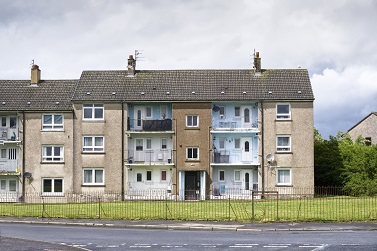This week’s announcement by the government to establish new community wealth funds from the expanded Dormant Assets Scheme to provide long-term investment for rebuilding some of the most deprived neighbourhoods in England is hugely welcome. The announcement, which follows four years of campaigning by local authorities, civil society funders, politicians across parties and community groups offers new hope for communities across the country that have been left behind, suffering from both deprivation and a loss of social infrastructure to sustain them.
A study undertaken for Local Trust in 2020 found that 225 such neighbourhoods in England could be described in this way. These are the neighbourhoods that have suffered most because of the decline of traditional industries as well as the disappearance of social institutions such as the pubs, cafes and community centres that support local civic life, define community identity and foster local pride and identity.
People living in these areas typically experience worse outcomes across a range of key indicators from health and wellbeing to employment and educational attainment – not just in comparison to the national average but also when compared to other equally deprived areas. Despite this, they have – for decades – missed out on their fair share of help and assistance. Analysis commissioned by the All-Party Parliamentary Group for ‘left behind’ neighbourhoods showed that since 2003 these areas had received some 70% per cent less charitable grant funding per head than other equally deprived neighbourhoods.
That’s why the government’s announcement of its commitment to create community wealth funds for disadvantaged areas such as these is a positive step. With a consultation now expected to take place over the coming months on how such funds could work, it will be critically important that that their design follows key principles set out by the Community Wealth Fund Alliance during its campaign to make the case for the establishment of these new funds. They should target the most deprived or ‘left behind’ neighbourhoods; be community led with decisions made by local people on how money is spent; accompanied by appropriate support for confidence and capacity building of local people; and be provided over the long term.


These principles are informed by the evidence of what has worked in past regeneration initiatives. Research by the University of Cambridge carried out for Local Trust, for example, found that key ingredients to successfully regenerating deprived communities included long-term funding of at least 10 years and community involvement embedded at every stage of design and delivery.
Too often past funding targeting communities has been short term, with consultants parachuted in to ‘help’ communities who disappear when the funding finishes and take the experience and skills gained with them as opposed to it being rooted in the community. These new community wealth funds need to be capable of delivering a long term legacy of sustainable change.
The bottom line is that people living in the most disadvantaged and ‘left behind’ neighbourhoods know best what their local area needs, better than a Whitehall mandarin or even a town council official. But they have tended to lack the social infrastructure – the community spaces and places and community groups – needed to support them to effectively organise and take responsibility for transforming their own neighbourhoods. It is therefore hugely welcome that government envisages that community wealth funds will see “local residents empowered to make decisions on how to use the money”. Key to the success of community wealth funds will be how through their establishment, they support and create the strong, local community-led institutions capable of advocating and delivering for their areas in the long term.
The principles we believe should guide the design of community wealth funds are also informed by our learning from Local Trust’s delivery of the Big Local programme, which has provided 150 disadvantaged communities across England with £1.2million each of National Lottery Community Fund cash since 2012. Many of them communities who had missed out on their fair share of funding in the past. Across the country, Big Local has shown how powerful local resident-led decision making can be in transforming local areas and the prospects of their residents.
In Whitley Bay, for example, local residents partnered with the local council and Mayoral Combined Authority to build a new hub at the centre of their community. On the Scotlands and Bushbury Hill estates in Wolverhampton, local residents have taken the lead in saving a local community centre, turning it into a focus of activity, supporting children and families across the whole of their area. In Poole in Dorset, a new multi-purpose centre fundraised for and run by local residents is providing access to services previously unavailable in their area. And in northwest Bristol, a Big Local-supported programme has helped improve access to affordable housing and provided training courses and apprenticeships to those out of work, as well as taking pioneering community-led action against climate change.
These projects have succeeded precisely because they have been part of community-led strategies to regenerate and improve their local communities, representing the type of approach community wealth funds need to take to make a real difference in under-funded and ‘left behind ‘communities. Today’s announcement is a promising start. The challenge now is to ensure that the principles underpinning the new funds are designed in a way that releases the potential of local residents and truly levels up left behind neighbourhoods across the country.
Matt Leach is Chief Executive of Local Trust












